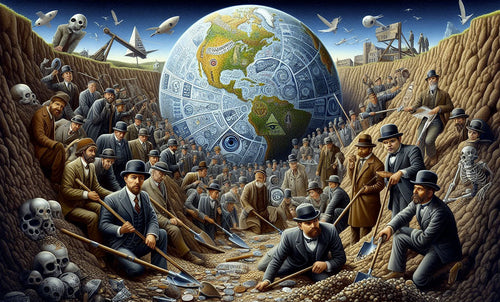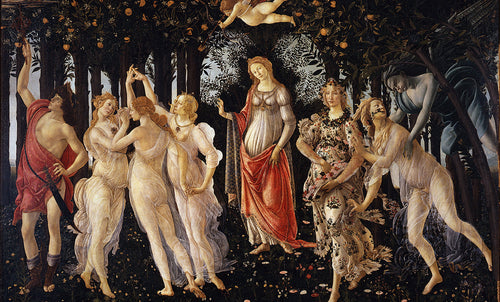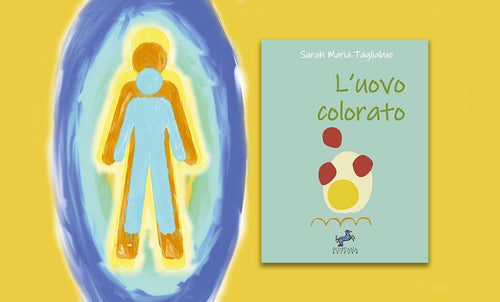
Fasting and self-work
Enrico D'ErricoI certainly do not have the experience of Christ when it comes to fasting, but I would like to share with you some impressions from my experiences in this regard. In our European culture, we feel the legacy of the times during the two world wars, when food was scarce and many families really had to tighten their belts. It is therefore natural that our descendants have also inherited strong resistance to the practice of fasting . There is also a whole tradition of punishing children by sending them to bed without dinner; so for many unthinking people, not eating for a meal or two is like inflicting a punishment on themselves.
Almost completely gone and abandoned, the custom of fasting on Fridays practiced in the circles of the Catholic Church, in favor of gorging every day on all kinds of food: meat, cheese, milk, cold cuts, fish, ice cream and sweets of various kinds, in the absolute triumph of the capital sin of gluttony, something I have spoken about extensively in other posts. People, whatever religion they profess, feel so far from God that they are forced to drown their existential anguish in food and other anesthetizing things.
But what happens when I fast ?
In the hours immediately following the start of the fast, some things happen: first of all, various ailments begin, such as headaches, stomachaches, sometimes diarrhea, sometimes constipation, a decrease in lucidity and energy, vaginal discharge for women, mood swings, irritability. Why? Simply because the toxins and impurities that were previously deposited in various places in the body, now enter the circulation again, and this is not at all pleasant. Imagine the excess fat accumulated for example in the cardiovascular system that begins to dissolve and circulate freely to be metabolized, digested and expelled again. Imagine the mucus that dissolves in the pulmonary system to be swallowed and digested again; finally, think of the intestine, whose walls are full of old feces "smeared" everywhere: they begin to flake off and increase internal putrefaction and then be expelled.
While we are not eating, we are not taking in new food, the body recovers everything it can: in practice the organism feeds itself.
The symptoms intensify on the second day of fasting and then finally subside, and after the third day, generally speaking, no major discomfort is felt.
Yes, but psychological, emotional and mental difficulties begin to emerge: this is why it is suggested for prolonged fasts to have an expert person next to us who knows what to do to support and comfort us; and if I speak of comfort it is not by chance because many fears and pains belonging to traumas of every era emerge. There are nodal points that belong to our incarnation, particular characteristics on which we have to work; the bodies that we have chosen from era to era have obviously resisted the normal evolutionary course, the push to which they have been subjected. The friction has certainly been very strong and signs of that pain experienced are reverberating up to us; with fasting we no longer have escape routes: food, the main anesthetic we use, is not there, to have sex galore perhaps we do not have the strength, to make compulsive purchases as well, if we drank alcohol we would feel like vomiting. In short, there is no escape, it is necessary for what must happen to happen!
I have to confess something to you: a few days ago I was about to lay my hands on a human being and not to caress or comfort him, but to hit him. I was beside myself! For a few minutes my bodies took over and were absolutely convinced of the rightness of their action: the person they were invective against was in fact, according to them, objectively reprehensible and mean. Thankfully, in a short time, I was back in control of my “earthly vehicle” and the thought that took hold was that even that creature, like all the others, has its own pain, its own traumas to process. This obviously does not justify his racist attitude towards a foreign woman he called a “slave”, but it creates useful ground for me to reflect on, both with regard to his behavior, but above all with regard to my reaction.
Why did I react like this?
It is true, in part there was indignation for having witnessed the scene of someone violently offending a defenseless and weak person; but there is certainly more, and this is part of my work for the next few days.
We were arguing about the fact that when you fast, many traumatic events from our entire existence come out; I told you about this episode because I just found myself in a situation where someone, soaked in his old pain never seen and reclaimed, in the grip of strong irritation pours out his anger on some scapegoat. This situation reminds me, once again, of the work done by Alejandro Jodorowsky, who illustrated very well how each of us carries with us the legacy of all our ancestors: violent deaths, betrayals, murders, abortions, criminal episodes and much more. He does not suggest psychoanalytic work but psycho-magical acts capable of dissolving certain bonds and helping the entire family branch.
It's nice to think that each of us has the possibility to dissolve situations that have become chronic over the centuries, in numerous incarnations. I love working on myself, because it is making me become an "adult", it is helping me to take on my responsibilities.
I love self-work because before I would have considered that man I told you about, an enemy, worthy of my contempt.
Now, after just 24 hours, I feel that he is a brother who has helped me know myself better, and before whom I must only bow with respect.
















































